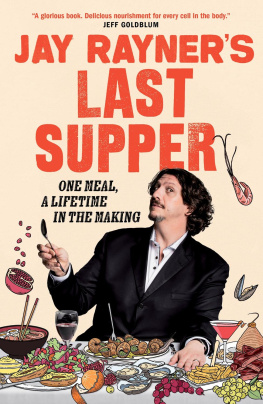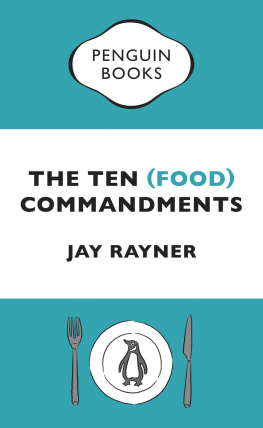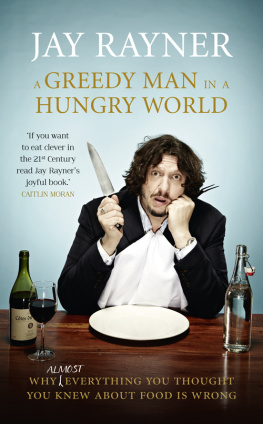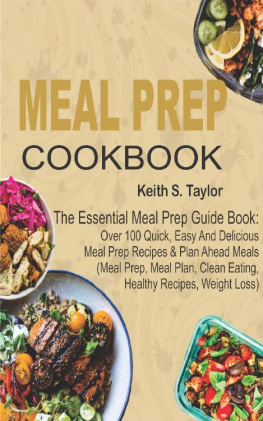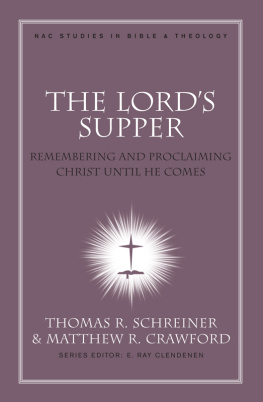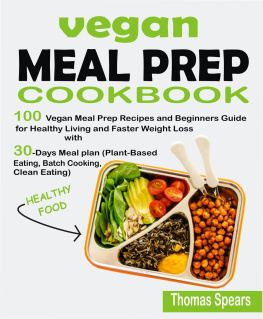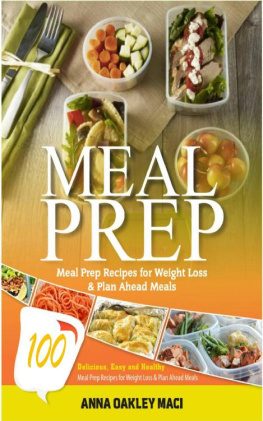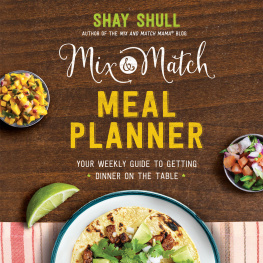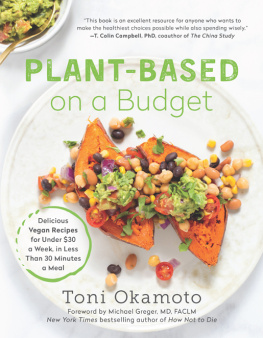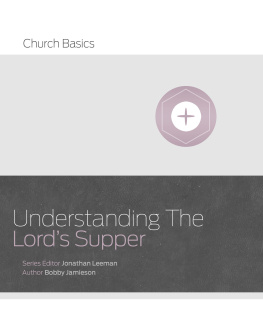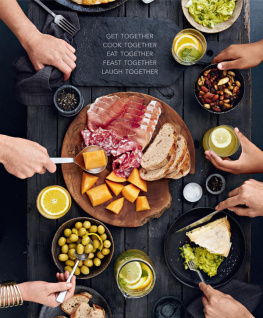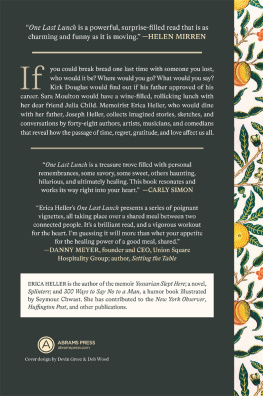After a while you get used to people wishing you dead. In my case it helps that the ones making the suggestion do so lightly, like they were proposing an ice cream or a cuddle. Often theres the catch of a laugh in their voice. Its that stifled amusement, the giggle before the darkness, which alerts me to whats coming.
I am standing on a stage in a small theatre or comedy club, the meat of my live show behind me, and I am taking questions. I am working my way from upstretched hand to upstretched hand, trying to be the most entertaining version of myself that I can.
Jay, so Ha! Here we go. What would be your death-row dinner?
The audience laughs. The audience always laughs. By asking the question the balance of power appears to have shifted, and brilliantly. There I am up on stage, owning the space. And now heres a member of the audience bringing me back down to earth by asking me to imagine that I am about to be put to death for some crime of which I am obviously guilty. Then again, they have heard the question only once; I have heard it dozens of times.
I reply. Some members of the audience laugh. Some of them look a little puzzled. Others look utterly furious. As far as theyre concerned, I really havent played the game at all.
*
The idea of last suppers, be they caused by the judicial system, suicide or misfortune of health, has long fascinated me. It seems such a simple question. You are about to die. What do you choose to eat? But it isnt simple at all. For a start, we eat to keep ourselves alive. Thats the whole point of consuming food. Its literally a bodily function. But if you knew your death was imminent, the basic reason for the meal would have gone. Youll be long dead before you starve. So now its about something else.
Do you choose comfort food, something that reminds you of the good times when you werent about to die? Do you allow your meal to parent you, to enfold you in the biggest hug possible? Or do you go for ingredients as statement? Your last meal should surely be a time to wade into luxury and excess. Gold leaf on desserts is obviously stupid, but if ever there was a time for stupidity, surely its now? And how big a part does memory play in all this? Those of us who are more obsessed with our lunch than is strictly necessary build our stories around mealtimes. We construct our narrative one plateful at a time. We eat, therefore we are.
Whats more, now you can eat what the hell you like because there are no consequences. Usually, too much deep-fried, sugar-rich food would result in you feeling queasy and worrying about your heart, about what type of person your appetites were turning you into. But now, who cares? Too much spicy, salty food might leave you with a dry mouth; too many Jerusalem artichokes might leave you farting for hours. None of these things matter any more.
But theres a problem, a very large one. Lets call it the mood issue. I am a man of appetites. I have appetites like Minnesota has lakes. (Minnesota has an awful lot of lakes.) But even I would be hard pushed to shove the thought of my impending death out of my head and get down to eating.
Which is exactly what I tell the people who ask me about my death-row dinner.
I might be a greedy bastard, I tell the audience, but even I would lose my appetite if the next morning I was to be the victim of an appalling miscarriage of justice. How dare the state take my life? The fact is, sometimes there are more important things than dinner.
They wanted an account of unfettered, careless indulgence.
They wanted me to make them feel okay about their own greed.
Instead Ive raised an issue of jurisprudence.
In 2007 photographer Melanie Dunea published a book called My Last Supper, in which fifty big-name chefs from around the world gave an account of what they would eat for their last meal on earth. They were then photographed looking thoughtful about their own mortality. In his introduction, the late Anthony Bourdain, the one-time chef turned writer and broadcaster, made the point that these were people who had already had the opportunity to eat anything and everything. You name it, theyd almost certainly been served it. Hence, when asked to describe a final meal, these chefs would probably go after something that reminded them of harder, leaner, simpler times before the glamour and pressure of superstardom. And there is a bit of that. Jamie Oliver chooses spaghetti allarrabbiata. Both Gordon Ramsay and April Bloomfield, the British-born chef who made her name in New York at the Spotted Pig, want a roast Sunday lunch.
But they are in the minority. Thomas Keller, once regarded as the greatest chef in America for his nerdy, intense cooking at the French Laundry, wants half a kilo of osetra caviar, then otoro, the hyper-expensive fatty belly of the endangered bluefin tuna. He follows that with a roast chicken, which sounds rustic enough, but then he goes all in with a Brie with truffles. All of this is to be served with a 1983 vintage champagne. Masa Takayama, the king of New York sushi chefs, wants sashimi of the fugu (blowfish), famed for the toxins in its liver, which can kill you if the fish is not prepared properly. He also wants a risotto with white truffles and a blowfish-testicle pudding with a thousand-year-old balsamic vinegar. Maybe for Masa the bollocks of the blowfish really are a taste of the simple life, though God knows what hed do if he was going for complicated. The New York chef Mario Batali lists a multi-course affair which even he describes as a shellfish extravaganza.
For a reality check you have to look at the work of the New Zealand-born photographer Henry Hargreaves, an opponent of the death penalty. In 2013 he put together a portfolio of photographs recreating various real death-row dinners. Some seemed obvious. The serial killer John Wayne Gacy, convicted of thirty-three murders and executed by lethal injection in 1994, asked for fried shrimps and a bucket of Kentucky Fried Chicken. The Oklahoma bomber Timothy McVeigh went for a whole tub of mint chocolate ice cream. These could indeed be interpreted as attempts by troubled adults to reach back to the innocent comforts of childhood. More curious was the request of murderer and rapist Victor Feguer, who asked for just one olive, stone in. Many subsequently tried to work out what this request meant, what it signified (especially the inconvenience of the damn stone), while apparently failing to recognise that this was the choice of a man guilty of monstrous crimes. The weirdness of his last meal was as nothing compared to the appalling and abnormal way in which he had lived his life.
In 2012 the academic journal Appetite, which considers the impact of cultural, psychological and social issues on what we eat and drink, published a paper analysing death row nutrition. The authors, Brian Wansink, Kevin Kniffin and Mitsuru Shimizu, looked at the contents of 247 last meals served in the US between 2002 and 2006, where the budget for the final meal ranged between $20 and $50, depending on the state. Some states allowed the food to be ordered in from nearby restaurants; others insisted it be made from what was in the prison store cupboard. Perhaps unsurprisingly, they found the average meal was a hefty 2,756 calories, which is more than the recommended daily intake for an adult male. The requests from death-row inmates in two states, Texas and Oklahoma, were for meals that were between 750 to 1,000 calories more than in most of the others. Four of them were 7,200 calories or more. (One person ordered a dozen pieces of fried chicken, two rolls with butter, mashed potato and gravy, two soft drinks, plus a pint each of strawberry and vanilla ice cream.) More strikingly, the average meal had 2.5 times the daily recommended serving of protein and fat. Chicken was the most popular meat, accounting for 37.3 per cent of requests, usually served deep-fried, followed by both hamburger and steak at just north of 20 per cent. Nearly 70 per cent wanted fried food. In pursuit of the familiar, there were a few requests for named brands. They wanted McDonalds and KFC. Sixteen per cent of those heading towards execution wanted to drink Coke. Curiously, three of them wanted Diet Coke. Maybe they just liked the taste.

